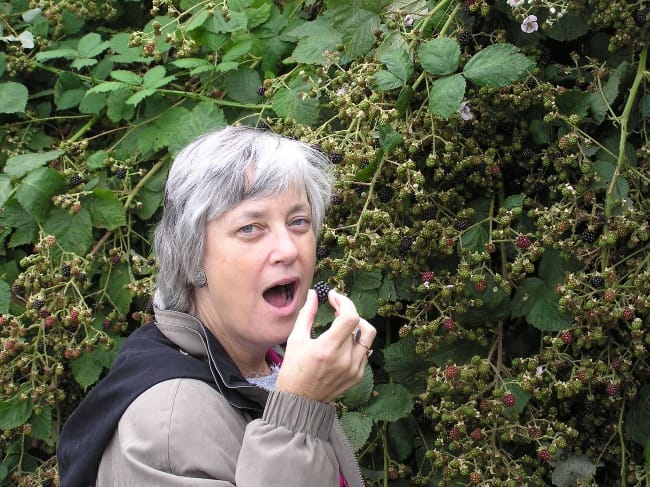The Ecological Disciple welcomes back guest writer and Circlewood friend, Christine Sine, as she reflects on summer and hospitality.
This post was originally published on Christine's blog, Godspacelight.
Summer for me is always a season of radical hospitality. It is also one of the cornerstones of the life of Christ and his legacy to us his followers. So, after the isolation of the last couple of years, it seems like a tidal wave of events, shared meals, and afternoon teas are in front of us. What fun!

Several years ago, I spoke at a seminary class about spirituality and gardening. It was a fun class, but one question asked by a student kept intruding in my mind. "Didn’t God curse the creation after the fall?" he asked, implying that it no longer reflected the glory of God and that we no longer needed to respect and look after it.
As I read through Genesis 3, which is the basis for this belief, I am struck by God’s amazing care for the humans who disobeyed him. Yes, the ground was cursed (Gen. 3:17-19), but it was not God who cursed it, it was the consequence of Adam’s sin. The natural created world was somehow affected by the human fall into sin and is therefore no longer paradise. Brambles and weeds grew. Human toil to produce food and care for creation increased. Nowhere, however, is there any implication that we are absolved from our responsibility to care for creation.
That summer I contemplated the thorns, the thistles, and the weeds that we all think of as part of the consequences of the human fall. Some of them produce the most delicious and nutritious food we can eat, as we can see in this video.
Take the humble dandelion for instance. Its leaves are often used in salads, its root for medicinal tea, and its flowers in jams and jelly. It helps break up the soil and draws nutrients up from deep within the soil. It is an amazing and valuable plant. Read more about dandelions and links to recipes here.
Then there is the blackberry which grows wild prolifically throughout the Pacific NW. It may be a pest, and I know it chokes out many smaller native plants, including the native blackberry, but its fruit blesses us with delicious pies and jams, and the birds butterflies and bees love them too. Every year in August, Tom and I used to travel to Mayne Island, Canada with our Canadian friends Tom and Kim Balke, for a few days' holiday. One of the delights of our trip was picking blackberries and wild apples to make blackberry apple crumble.
Snails are another pest that can be a delicacy for many. Ironically some people love escargot and spend big bucks to buy them and then complain about the snails that destroy their gardens.
And in many Asian countries, tarantulas, crickets, and ants are all considered delicacies.
Native peoples are all very well aware of the wild hospitality of God and many other foragers have joined them in enjoying the rich harvest that the earth provides. Here in the Pacific NW, salmonberries, native blackberries, huckleberries, and elderberries are but a few of these delights. Then there are the mushrooms – chanterelles are our favorites, but I love it when friends bring us morels, lion’s mane, and other delectable edible fungi straight from the forest.
It seems to me that part of the curse we suffer from is our inability to recognize the abundance and hospitality of God in the garden that is our earth. God is a generous God who invites us to a banquet feast, not just in the eternal world to come, but here in this world, too. Often, all we need to do is reach out and recognize the gift and accept God’s amazing hospitality.
So, take a walk around your garden or the closest nature reserve to your home. What “pests” do you see that really are part of the abundance of God?
Christine
You can reach Christine directly at seasickdoctor@gmail.com. You can also leave a comment for Christine by clicking here.
An Invitation to Our Readers! If you are growing a garden this season, we would love to see a picture (or pictures) of a favorite spot in your garden—or something that you're growing that you are excited by or proud of. We plan to combine these into a post from our readers, so take a picture, include a short explanation, and email it in to us at info@circlewood.online before August 8th!
